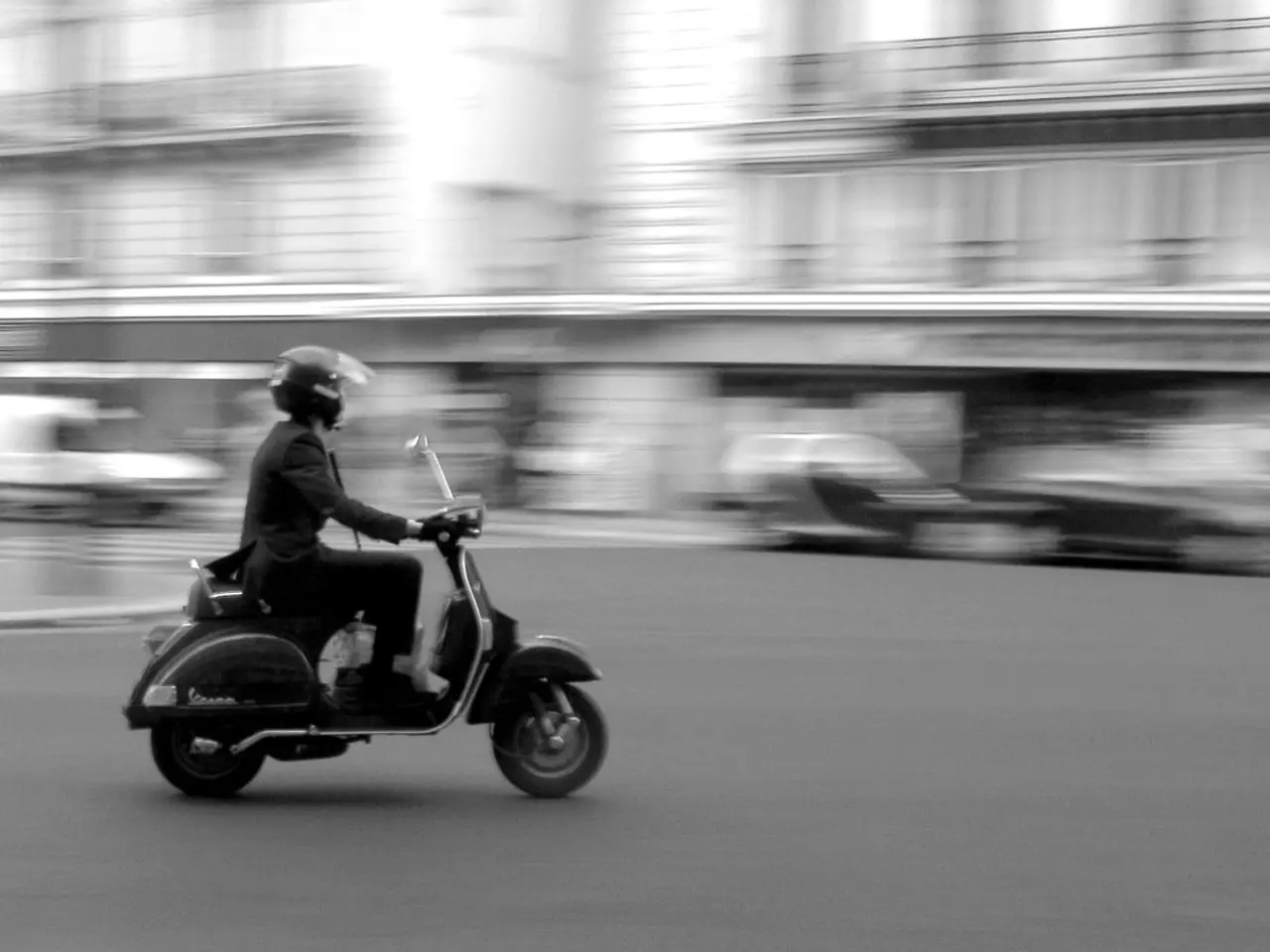Soaring E-scooter Mishaps and Fatal Incidents Reported in Germany
In the bustling streets of German cities, the popularity of rental e-scooters has soared, but so too has the number of accidents involving these vehicles. According to the German Insurance Association (GDV), there were 11,944 e-scooter accidents in 2024 – a 26.7% increase from the previous year's 9,425.
The increase in accidents has led to serious injuries, with approximately 1,500 reported as serious and an additional 11,400 as minor. Alarmingly, a significant proportion of these accidents can be attributed to poor driving and the misuse of e-scooters on pavements. Incorrect use of the road was cited in 21.2% of e-scooter accidents.
One factor that stands out is the disproportionate involvement of alcohol in e-scooter accidents. Alcohol played a role in 12.4% of e-scooter accidents, a significantly higher proportion than among cyclists (7.8%) and moped riders (5.9%). To address this issue, e-scooter riders under 21 or new drivers are required to observe a zero-alcohol policy.
To improve safety and affordability, the German authorities are considering introducing changes to e-scooter regulations. These proposed changes include maintaining a maximum speed limit of 20 km/h and restricting power to 500 W. E-scooters would be allowed on cycle paths or roads if no bike lane exists. Riders would typically be required to wear helmets, and age limits around 14-16 years are under discussion.
Stricter regulations are also being considered, such as mandatory third-party insurance and possibly new driving license requirements. Sidewalk riding remains prohibited except where explicitly allowed by signage. Riders are obliged to use the road when bike lanes are not available.
Helmet use, insurance, and registration may see updates to increase rider accountability. However, cross-border compatibility issues arise as German regulations must mesh with broader EU micromobility standards. Nonetheless, German authorities are aiming to integrate insurance and licensing requirements akin to those for motorized bikes, reflecting a cautious step toward safer, regulated usage.
It's worth noting that the e-scooter speed and power limits are aligned with wider EU rules. The number of e-scooters on German roads has increased rapidly, with private ownership climbing by 37% during 2024. Rental e-scooter riders are more likely to ride without helmets and are more frequently involved in accidents.
Interestingly, 82% of people involved in e-scooter accidents were under 45 years old, with nearly half being under 25. By contrast, bicycle accident victims skew older, with only 21.4% being under 25, and 20.5% being aged 65 or older. Rental e-scooter users are more likely to be younger and less experienced.
Despite the challenges, the rise in e-scooter accidents serves as a reminder of the need for continued dialogue and the implementation of stricter regulations to ensure the safety of all road users.
- In the realm of health and wellness, caution is advised when engaging in fitness-and-exercise activities like e-scooter riding due to the high number of accidents, an issue that extends beyond German cities and affects other areas.
- The rise in e-scooter accidents has been partially attributed to mental-health factors, such as impulsivity and carelessness, which are common among young people (aged 14-25), the primary demographic of rental e-scooter users.
- The intersection of science, general-news, and crime-and-justice reveals an alarming trend: alcohol plays a significant role in e-scooter accidents, and stricter regulations, such as a zero-alcohol policy for underage or inexperienced riders, are being proposed to address this concern.
- Adequate nutrition, particularly in the context of sports and sports-betting, can contribute to a higher likelihood of recovery from minor injuries sustained in e-scooter accidents, making it essential for riders to maintain a balanced diet.
- The recent spike in car-accidents in German cities may be partially due to increased distractions caused by the popularity of e-scooters on the roads, compelling law enforcement and traffic engineers to consider measures to improve overall road safety for all vehicles and users.




